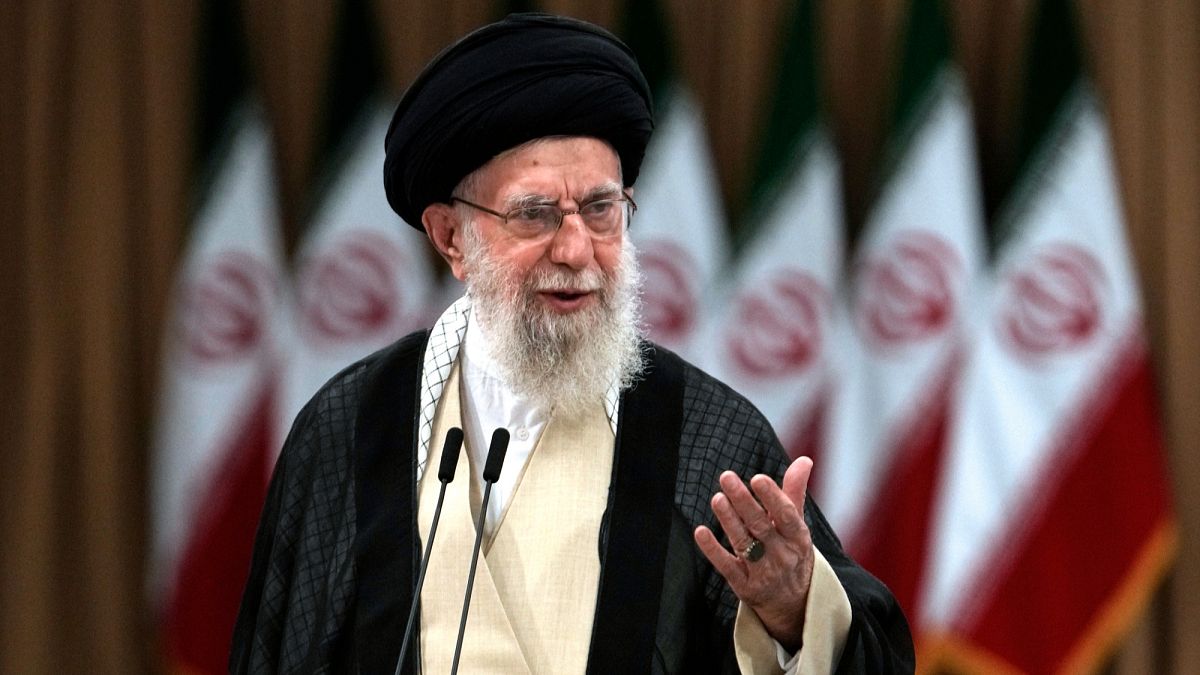

In recent developments from the Middle East, a series of events and statements have marked a heightened state of affairs between Iran, Israel, and the United States. These events follow the recent ceasefire announcement that had momentarily reduced tensions in the region. The backdrop to these developments involves military actions, diplomatic moves, and complex geopolitics shaping the narrative.
Iranian Supreme Leader Ayatollah Ali Khamenei surfaced in a public appearance, proclaiming a victory over Israel. This statement came amidst his criticisms of U.S. involvement in the Middle Eastern conflict. Khamenei highlighted Iran’s retaliatory missile attack on a U.S. base in Qatar as a monumental act, terming it a “heavy slap to the face” of the U.S. His rhetoric aims to position Iran as resilient and victorious in the face of adversarial actions from the U.S. and Israel, asserting that these nations gained no substantial advantage from their engagements with Iran.
Meanwhile, amidst these bold proclamations, the CIA has furnished new intelligence reports asserting that recent U.S. military strikes have substantially damaged Iran’s nuclear capabilities. Specifically, these strikes critically impacted Iran’s Fordow nuclear enrichment site, rendering it inoperable according to the Israeli atomic agency—although U.S. leaked intelligence assessments counter that these setbacks are only temporary, potentially delaying the program by mere months.
The situation is further complicated by Iran’s internal political maneuvers. The Iranian parliament has endorsed a bill to suspend the nation’s cooperation with the United Nations’ nuclear watchdog, the International Atomic Energy Agency (IAEA). This legislative move underscores Tehran’s dissatisfaction with the IAEA’s response to the recent strikes, which Iran feels lacked necessary condemnation. This decision could bear implications on global nuclear diplomacy and stability in the region.
On a wider regional scale, Israel’s National Security Minister, Itamar Ben-Gvir, has called for a complete cessation of humanitarian aid to Gaza—a position reflecting escalating tensions with Hamas, which is alleged to be commandeering aid supplies. Ben-Gvir’s stance has domestic and international ramifications, especially considering the involvement and interests of other nations, including the United States, which has advocated for humanitarian considerations amid the conflict.
Internally, Iran is witnessing a significant crackdown led by its authorities as they shift from the external military focus to addressing internal security measures. This has resulted in a surge of arrests and sentences, particularly targeting dissenting voices and activities in the politically sensitive Kurdish regions, indicative of the government’s prioritization of statewide stability amid external pressures.
These developments represent a complex tapestry of military activities, declarations of defiance, geopolitical maneuvers, and internal politics. The regional dynamics continue to evolve, reflecting longstanding contentious relationships that require nuanced understanding and engagement from global and regional actors alike. As these tensions persist, the need for dialogue and diplomatic interventions remains ever critical to easing the simmering situation in the Middle East.
Source: {link}
